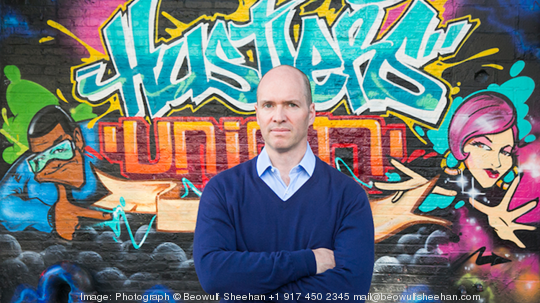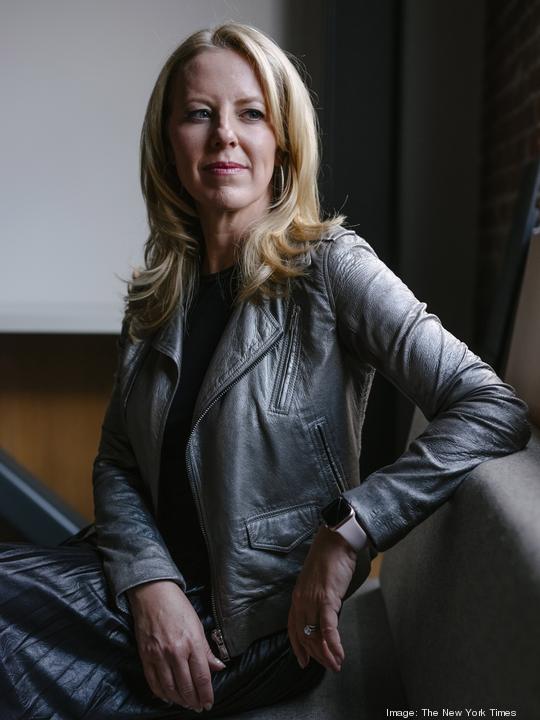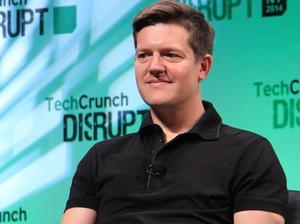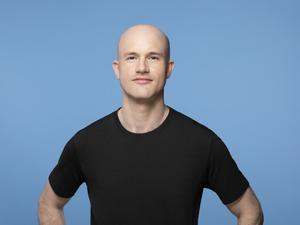
Crypto, Web3 and rumors of an impending IPO.
Normally these buzzwords could describe a number of Silicon Valley players on any given day, but over the past few weeks it's been all about Andreessen Horowitz, aka A16z, the prominent venture capital firm based in Menlo Park.
Last month, CNBC reported that the firm was sending a team to Washington, D.C., to push for regulations around "web3" — the theorized next iteration of the internet that will be built on decentralized protocols (think blockchain) that facilitate things like cryptocurrencies, NFTs and social experiences.
In a recent blog post, A16z General Partner Chris Dixon described web3 as a combination of the best parts of Web 1.0 and Web 2.0 — essentially the first two decades of the internet which gave us AOL, MySpace, Pets.com, Facebook and the iPhone.
"We are now at the beginning of the web3 era, which combines the decentralized, community-governed ethos of web1 with the advanced, modern functionality of web2," Dixon wrote.
A few weeks after CNBC's report, the New York Times followed up with more details about who the firm was sending to deal with political players, which politicians they were targeting and what exactly they were pushing for.
According to the Times' reporting, it appears that A16z is mounting a preemptive charm offensive to get favorable regulations for some of its biggest bets around cryptocurrencies, but due to a regulatory loophole, the firm's representatives don't have to register as lobbyists since they don't spend at least 20% of their time lobbying.
“We don’t think we need a lobbying team right now, and we don’t view this as a lobbying effort,” A16z's Tomicah Tillemann told the NYT. It's “an opportunity to work constructively with policymakers to solve problems of mutual concern.”
Tillemann is a partner and the head of global policy for crypto at A16z and was part of the non-lobbyist lobbying team that went to Washington. Tillemann previously worked in politics as an adviser to two secretaries of state and a staffer of the Senate Foreign Relations Committee when President Joe Biden was in Congress.
The firm's team also included Katie Haun, a general partner and former federal prosecutor with experience investigating crypto and dark web crimes, as well as Brian Quintenz, an advisory partner on crypto that the firm recently poached from the Commodity Futures Trading Commission, a regulatory body that governs U.S. derivatives markets.
According to the NYT, their five-day D.C. blitz included lunch with New York Sen. Kirsten Gillibrand, a meeting with the president's top economic aides and dinner with a "major financial regulator."

The firm is the largest crypto investor in the world — holding a major stake in Coinbase, the nation's largest cryptocurrency exchange — and is pitching draft legislation to exempt "related entities from certain tax reporting, consumer protection and anti-money-laundering requirements," the NYT reported.
In 2019, it registered with the SEC to become an investment adviser which allowed it to pursue cryptocurrency more deeply, and has since been accelerating its efforts in the space.
This summer, the firm announced a $2.2 billion fund for crypto investments, which its general partner Haun oversees. Four months later, it is reportedly raising another $6.5 billion for a broad set of investments in early- and late-stage startups.
If that isn't enough, a reporter with The Information predicted that A16z will prep for its own IPO as early as next year following a path that several private equity firms have taken since 2007 including Blackstone, Apollo Global Management, KKR and Carlyle Group. The firm is small compared to its private equity peers but stands out as one of the largest players in venture capital. It manages $19 billion in assets, a figure that has nearly tripled over the past three years.
While listing as a public company will force it to make more financial disclosures, it could also provide a stream of cash to fund investments and make it easier to hold onto stakes in its portfolio long after startups go public themselves.
Sequoia Capital, another major venture capital firm based in Menlo Park, announced in October that it was also branching out as a registered investment adviser and restructuring "around a singular, permanent structure: The Sequoia Fund," Roelof Botha, a partner at Sequoia, wrote in an announcement.
The new structure will allow it to hold onto its stakes in public companies beyond the typical 10-year fund cycle. In its announcement, it explained that some companies accrue a lot of value long after an IPO.
"Square, for instance, which we partnered with early in 2011 and where I remain on the board of directors, had a market capitalization of $2.9B at the IPO in 2015. Five years later Square grew to $86B, and today is worth over $117B," Botha wrote.
Botha, along with Sequoia Capital China Managing Partner Neil Shen, are said to be next in line for the leadership at the legacy VC with the transition from current managing partner Doug Leone expected to happen sometime between 2022 and 2023 around the firm's 50th anniversary.






